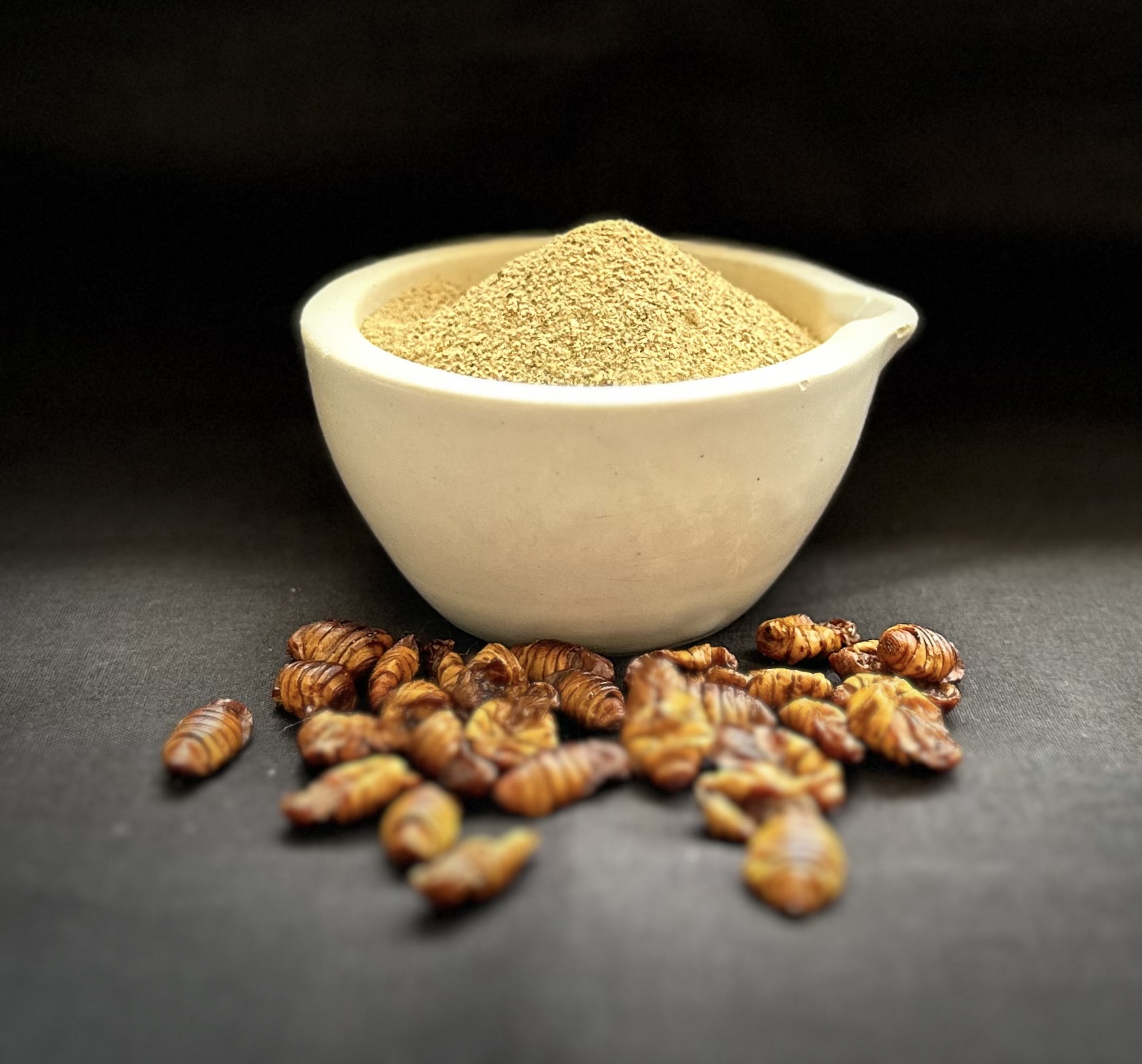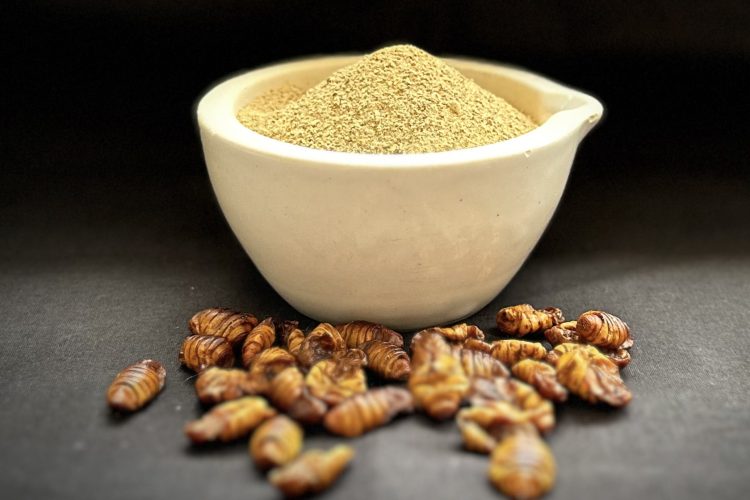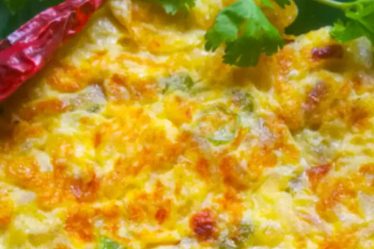
Loopworm’s co-founder Ankit Alok Bagaria shares why silkworm pupae are the solution the pet food industry has been looking for.


Credit: Loopworm
The pet food industry is wrestling with a big problem: sustainability. Companion animals account for a whopping 25 percent of the environmental impact from meat consumption in the US – an incredible figure! Because of this, finding planet-friendly protein sources is not merely a good idea, it’s an imperative. That’s where silkworm pupae come in; this science-backed pet food solution is changing how we approach our pets’ health, while also giving the planet a break.
The problem with traditional pet food
Silkworm pupae have an incredibly low environmental impact and, unlike other insect farming enterprises that are still figuring things out, silkworm cultivation has been perfected over thousands of years.”
The way pet food is currently made takes a considerable toll on the environment. Wet pet food creates 33.56kg CO2eq per 1,000 calories, and dry food creates 4.25kg CO2eq per 1,000 calories, based on studies at the University of Edinburgh.
Beyond the carbon footprint, the manufacture of pet food is depleting fish stocks for marine ingredients and conventional livestock proteins are considered massive contributors to environmental damage.
Why silkworm pupae are a game-changer
Silkworm pupae have an incredibly low environmental impact and, unlike other insect farming enterprises that are still figuring things out, silkworm cultivation has been perfected over thousands of years. The long history of silk production means the breeding and growing processes of silkworms has been optimised over time to consistently deliver high-quality nutrition with minimal damage to the planet.
A 2021 study by Areerat et al. demonstrated that swapping out traditional poultry meal for silkworm pupae in a dog’s diet had no negative effects on their nutrient intake, their ability to digest food, their weight or their blood work.
The nutritional profile of a 100g dried sample of silkworm pupae includes 50g of crude protein, 30g of crude fat and a complete set of amino acids. This makes it a viable, hypoallergenic option, especially for dogs that experience food sensitivities. Plus, the natural antimicrobial compounds, omega fatty acids and chitin provide further benefits to their immune system, helping to alleviate allergic reactions. Pet food companies are already mixing these silkworm ingredients into their commercial dog food with great success.
Agricultural researchers in Taiwan first brought silkworm pupae into the cat food world, noting significant advantages to health. Cat owners reported a reduction in faecal odour alongside silkier, more luxuriant fur. The researchers attributed this to the pupae’s antimicrobial properties, helping to moderate the ‘unfriendly’ bacteria in a cat’s gut. The omega-3s were considered responsible for their improved skin and coat, soothing inflammation and allergies. And for cats with diabetes, a compound called 1-deoxynojirimycin (1-DNJ) helps keep blood sugar levels steady.
Silkworm pupae meal has also shown exceptional benefits for ornamental fish, with studies suggesting that including it at 10-20 percent of their diet promotes healthy growth. In farmed Nile tilapia, the addition of silkworm pupae to their diets led to higher weight gain and better daily growth rates, outperforming traditional fishmeal in efficiency. The natural pigments and nutrients have even enhanced colouration – a huge plus for ornamental species. Koi carp especially get better slime coat protection, making them tougher against parasites and infections. One Vietnamese study using Loopworm’s silkworm pupae meal found that replacing just 3–5 percent of anchovy fishmeal with silkworm pupae led to 50 percent faster feed detection, 15 percent more feeding activity and 29 percent lower mortality rates.
Perfect for reptiles, amphibians and birds
For reptiles and amphibians, silkworm pupae are an exceptional match for their natural dietary needs. As a 100 percent natural, high-protein treat, the food represents a close match to what insect-eating animals would naturally find in the wild. In addition, both ornamental and wild birds alike thrive on this during breeding and moulting seasons, as the optimal nutrient composition supports health while making their plumage, scales and skin colours more intense.
A superior source of nutrition
What makes the silkworm pupae so nutritionally superior is their unique production environment. Since they feed exclusively on fresh mulberry leaves, silkworms are completely free from harmful chemicals and antibiotics found elsewhere in animal production.
This controlled diet guarantees a stable, consistent nutritional profile – a huge advantage over other insect proteins:
- Chitin provides antimicrobial properties that support gut health
- The complete amino acid profile covers the protein-building needs of many different species
- Natural compounds work together to bolster the immune system, reduce inflammation and generally enhance pet health.
The road ahead
The EU has already approved silkworm pupae in animal diets, which confirms their safety and nutritional value and positions them as a legitimate alternative protein source. Companies are currently setting up supply chains and quality assurance protocols, proving this ingredient is commercially viable.
Silkworm pupae are so much more than a protein source; they are capable of providing a complete shift towards sustainable, species-appropriate nutrition.”
The smart strategy right now is to focus on specialty applications, like food for pets with specific dietary or health needs, where the nutritional benefits justify the current higher costs. This foundation will enable broader adoption as production scales up and costs come down.
Success hinges on collaboration between silk producers, pet food manufacturers and nutrition companies, with a focus on optimising processing to maintain nutritional integrity, developing efficient systems for producing meal, oil and hydrolysate, and educating consumers about the amazing sustainability benefits.
Regulations surrounding novel foods are changing quickly, which is great for companies focused on quality standards. By emphasising the premium market first, the industry can build credibility before taking it mainstream.
Silkworm pupae are so much more than an alternative protein source; they are capable of providing a complete shift towards sustainable, species-appropriate nutrition. From soothing a dog’s sensitive stomach and making a cat’s fur shine to improving fish health and enriching a bird’s diet, this versatile ingredient is tackling multiple challenges all at once.
Environmental necessity, proven nutritional benefits and rising consumer awareness have converged to ask the question that silkworm pupae can answer. If we want to cut down on our environmental impact while still giving our pets the best possible food, silkworm pupae are a scientifically validated solution that helps pets, owners and the planet.
Meet the author


Ankit Alok Bagaria, Co-Founder of Loopworm Private Limited
Ankit is the dynamic force behind Loopworm, a startup that’s redefining the future of sustainable food systems. Passionate about the potential of insect biotechnology, Ankit co-founded Loopworm to create high-yield, sustainable protein sources from farmed insects. This innovative approach has already garnered significant attention, landing Ankit a spot on the prestigious Forbes India and Asia 30 Under 30 lists.
While pursuing a dual degree in chemical engineering, Ankit was inspired by a UN report Insects are the Future of Food & Feed, to channel his newfound passion for biotechnology into a mission to harness the power of insects.
Loopworm’s core mission is to unlock the untapped potential of insects, driving sustainable innovation in nutrition, health and wellbeing. Ankit, alongside co-founder Abhi Gawri, is focused on developing insect-based protein alternatives for aquaculture, poultry, pets and other feed industries.
At Loopworm, Ankit manages and strategises all R&D projects, oversees business development, ensures financial stability, and fosters collaborations with research institutes, government agencies, and corporate partners.



Промышленный 3D принтер открывает новые горизонты для производств, позволяя создавать сложные детали с высокой точностью и эффективностью.
Промышленный 3D принтер